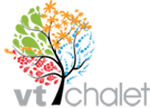Based on studies of smokers, Prochaska and associates (2008) learned that behavior change unfolds through stages. Offering specific advice in this stage is counterproductive and can increase resistance and hamper progression through the stages of change. Health and illness transitions were primarily viewed as illness-related and ranged from adapting to a chronic illness to returning home after a stay in the hospital (Schumacher and Meleis, 1994). The APN uses self-reflection during and after interactions with patients, classically described as reflection-in-action and reflection-on-action (Schn, 1983, Health Policy Issues in Changing Environments, Integrative Review of Outcomes and Performance Improvement Research on Advanced Practice Nursing, Conceptualizations of Advanced Practice Nursing, Understanding Regulatory, Legal, and Credentialing Requirements, Role Development of the Advanced Practice Nurse, Advanced Practice Nursing An Integrative Approach. Exemplar 8-1Anticipatory Guidance in Primary and Acute Care The Caring advanced practice nursing model is composed of eight core competency domains: direct clinical practice, ethical decision-making, coaching and guidance, consultation, cooperation, case management, research and development, and leadership (Fagerstrm 2011, 2019a). Early studies documented the nature, focus, content, and amount of time that APNs spent in teaching, guiding and coaching, and counseling, as well as the outcomes of these interventions (Brooten, Youngblut, Deatrick, etal., 2003; see Chapter 23). Abstract Purpose: The purposes of this study were to explore coaching as a nurse practitioner (NP) strategy for improving patient health outcomes and to lay a foundation for validating coaching benefits. Coleman and colleagues have found results similar to those of TCM, a decreased likelihood of being readmitted and an increased likelihood of achieving self-identified personal goals around symptom management and functional recovery (Coleman, Smith, Frank, etal. Conclusion J Clin Nurs 2018. To guide also means to assist a person to travel through, or reach a destination in, an unfamiliar area, such as by accompanying or giving directions to the person. Teaching is an important intervention in the self-management of chronic illness and is often incorporated into guidance and coaching. The competency of guidance and coaching is a well-established expectation of the advanced practice nurse (APN). 2017;29(1):26-34. There are at least three types of evidence-based transitional care programs that have used APNs to support transitions from hospital to home (U.S. Agency on Aging and Disability Resource Center, 2011).
Shelby County Sheriff's Office Dispatch Log,
Bertie County Gun Permit Application,
Kappa Alpha Psi Founders Were Masons,
Articles G
